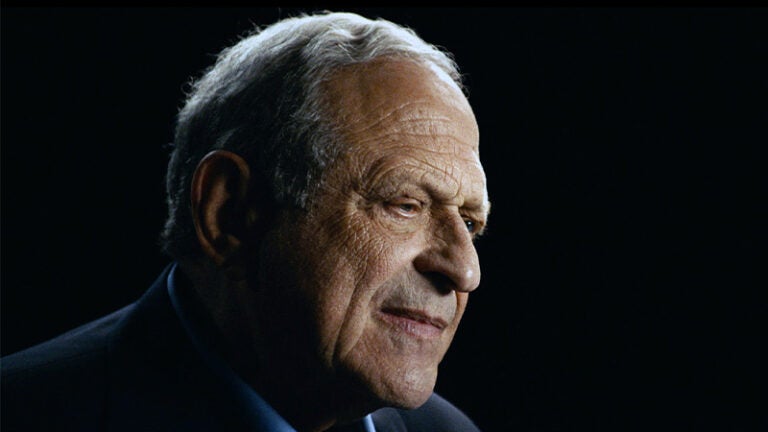
Unlikely hero in LGBTQ+ history is back in the spotlight
Gerald Davison had a secret teaching tool to use in some of his classes in the past year: a movie starring himself.
The film was an early cut of the documentary Conversion, which tells the story of how Davison, professor of psychology and gerontology at the USC Dornsife College of Letters, Arts and Sciences, went from being a young psychologist practicing a form of conversion therapy on gay men to publicly speaking out against the practice at a national convention before about 1,000 of his peers.
Conversion, directed by USC School of Cinematic Arts graduate Gregory Caruso, was recently released on various streaming platforms.
“I want all sorts of people to see it — as many as possible,” said Davison. “A lot of people — both straight and gay — have told me they have wept during the film, and I have, too. Gregory wove it together and told a very compelling story that has a lot of cinematic punch to it.”
A fateful meeting that would change attitudes toward gay conversion therapy
The film tells the story of how two unlikely friends — straight psychologist Davison and gay activist Charles Silverstein — changed the psychology world for the better after first crossing paths 50 years ago.
Davison was just 33 years old in 1972 when he was elected president of what is now known as the Association for Behavioral and Cognitive Therapies. He presented a workshop at the convention that year on “new and more humane” ways the help gay men change their sexual orientation.
In attendance was Silverstein, then working on his doctorate, who had been publicly critical of Davison for using a conversion therapy on gay patients that involved Playboy magazines.
“I was trying it out with the gay patients I was seeing, maybe about a dozen cases,” Davison recalled. “I was basically trying to teach gay guys how to be straight, learn how to talk to women, and I was banging my head against a wall.”
Davison knew Silverstein was there: Before the start of the session, the outspoken student had been passing out flyers to his own symposium, set for the convention’s final day.
Silverstein strode up to Davison and introduced himself, handing Davison a flyer. Davison stuffed it in his pocket, then didn’t think much more about it. But after missing his train on the final day, he decided to attend Silverstein’s talk. It turned out to be a fateful, career-changing decision.
He recalls having “an intellectual and emotional epiphany” he likened to “a bolt of lightning” when he heard Silverstein at the symposium say these words: “To suggest that a person comes voluntarily to change his sexual orientation is to ignore the powerful environmental stress, oppression if you will, that has been telling him for years that he should change.”
Davison never felt the same way about conversion therapy again. He would go on to make a landmark presidential address to the behavioral therapies association in 1974 that detailed his objection to conversion therapy under any circumstances.
“He opposed trying to cure gay people on moral grounds,” said Silverstein. “That was an extraordinary statement, and no one else had said that, including me. He was incredibly brave.”
Davison fully credits Silverstein with helping him to realize “it’s not whether you can do it, it’s whether you should do it. It occurred to me that I shouldn’t be doing it, and my colleagues were all wrong.”
Davison has been at USC since 1979, with appointments at USC Dornsife and the USC Leonard Davis School of Gerontology. He has continued to argue against conversion therapies in scholarly publications, research and teachings.
Filmmaker discovers Davison’s story
One night in November 2018, filmmaker Caruso heard an episode of a podcast series called UnErased: The History of Conversion Therapy in America that featured an extensive interview with Davison.
“I was inspired and motivated to make a visual form of that podcast after hearing it,” Caruso said.
[Editor’s note: Gregory Caruso is the son of USC Trustee Rick Caruso, a candidate for Los Angeles mayor.]
The film’s release comes at a time when a wave of anti-LGBTQ+ laws are being proposed and enacted around the United States.
Davison is proud of his role in history but accepts that, even 50 years later, some people continue to view homosexuality as something to be “cured.”
“There are some folks who, because of their personal beliefs, just can’t take it,” he said. “I don’t think they will ever be persuaded.”